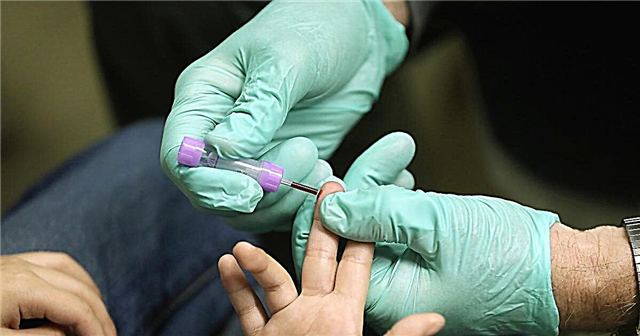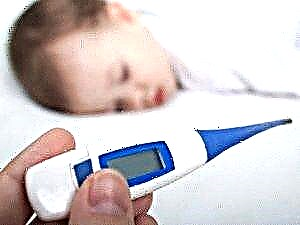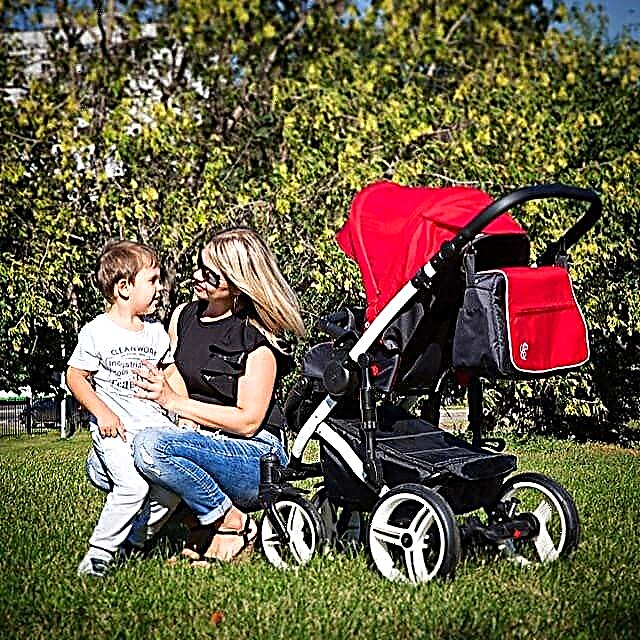











- 1 month
In the first week of life, the newborn loses up to 8% of its birth weight, then its weight begins to grow. On about the 7th day, the umbilical cord remains. Until the 3rd week, the baby perceives only loud sounds, since the ears are closed with embryonic fluid. Until the end of the month, his skin gradually brightens and acquires a natural color. The muscles in the baby are in tone, called physiological by pediatricians, so the arms and legs are bent all the time, and the palms are clenched into fists. The child can see objects at a distance of up to 30 cm, turns his head towards the light. During this period, colic and regurgitation are most common. The child needs to be laid out on his tummy, while he raises his head and holds for a few seconds. In the first month of life, a weekly visit to the baby by a pediatrician is mandatory. To inform parents about their needs, the baby cries, and calms down when they take him on the arms. At a time, he eats 80-120 ml of breast milk or its substitute - a mixture. Feeding frequency is approximately every 2 hours. The average weight gain is 1 kg, in height - 2 cm. ... read more ...
- 2 month
The kid already makes discernible sounds, purrs, gurgles. The tone of his voice changes. At the sight of his parents, he smiles, begins to distinguish voices, listens to conversations. During this period, he smiles for the first time, albeit unconsciously. In order for the baby to confidently hold his head, you need to spread it more often on the tummy. This same exercise will strengthen your abdominal muscles and help relieve colic. Holds a rattle in the handle, shakes it, carefully observes the toys. Turns on a barrel and sleeps on it. Lying on your back, straightens the arms and legs. Pulls pens into the mouth, while saliva is abundantly released. Tears appear during crying. It's time for the development of visual skills to attach a mobile to the crib. Daily walks in the fresh air are very important for the child's health, and attention should also be paid to developing a sleep and wakefulness regime. During the second month of life, the child gains about 800 g and stretches a couple of centimeters. ... read more ...
- 3 month
The kid is already able to feel the environment, sees more and more objects. He likes to be carried in a column in order to better view his surroundings. Examines palms, fingers. Turns his head in different directions in search of a sound source, clearly distinguishes the faces of others. Begins to distinguish smells. From this month, parents need to closely monitor the baby, because he begins to roll over from his back to his tummy. Another achievement is that he already confidently holds his head, being in an upright position on his hands or lying on his stomach. Now the kid will like the bright developmental mat, the rocking center. If you put a multi-colored toy in front of him, he will try to reach it and grab it on his own. Pulls rattles into his mouth. The average weight gain is 800 g, in height - 2 cm. ... read more ...
- 4 month
The period of colic gradually passes, now the baby can sleep a little longer and wake up less often for feedings. Lying on his tummy, he tries to get up, leaning on the arms. He recognizes his mother among other people, smiles at her, talks. Listens to music. Of particular interest is its reflection in the mirror. Longer can focus on objects or some kind of process. Turns over from the back to the side and onto the stomach. Tries to roll over on the back. Reaches for toys, takes the toy with two hands. It is pushed by the legs and handles from the support. Lying on the back, raises his head and presses his chin to his chest. If you pull it up by the handles, it tries to sit down. He takes a toy and shakes it with one hand, joyfully reacts to the music that he likes. He actively tries to participate in the conversation, babbling individual syllables with varying strength. Weight gain - 700-800 g, height - 1-2 cm. ... read more ...
- 5 month
The kid can easily roll over onto the side, from the belly to the back and vice versa. Lying on his back, raises his head to see more. Legs against the bed and tries to stand on the "bridge". Lying on his stomach, stretches out his arms and legs straight, holds the toy with one hand. More and more surrounding objects are of interest to the baby, especially colored ones. Shifts toys from one handle to another. Watching a toy falling to the floor. Now he not only takes them in handles and throws them, but also tries to pull them into his mouth. This may indicate the imminent appearance of teeth. The baby cries much less often, smiles and laughs more; he's interesting and funny. The appearance of a stranger can cause negative reactions and even crying. Shifts his gaze from one present interlocutor to another. For a month, a child gains on average 700 g and 1-2 cm in weight. ... read more ...
- 6 month
The kid has learned to sit confidently without support, although he does not sit down yet. Some children still make attempts to sit on their own. Lying on the tummy, rests on the outstretched arms and rises. With support, he leans on his legs and tries to stand. Makes attempts to get up on all fours. Reaches out to distant objects. Selects the toy you like from several offered to choose from. Examines pens, fingers. At this time, it is time to introduce the first complementary foods. Most often, it starts with steamed vegetables. Stool quality is changing, and breastfeeding is decreasing. Gustatory preferences are developed. Drinks from a sippy cup. Turns when called by name. Begins to pronounce the syllables "ma", "ba", "yes". Sleeps 2-3 times during the day. During this period, teeth begin to erupt. This can be accompanied by pain, fever, increased salivation, and anxiety. Weight gain - 650 g, height - 1-2 cm ... read more ...
- 7 month
The kid loves to spend most of the time lying on his tummy. Begins to crawl, independently assumes a sitting position and maintains balance. Some children at this age are already confidently sitting down. The kid pulls his hands to his mother, asks to be picked up. He addresses others, calls them. The child no longer falls asleep after eating, he spends more time playing. Sits with a straight back, while feeding, turns in different directions, tries to evade. Babbles a lot, tries to imitate the sounds made by adults. He takes a rattle and knocks it on the surface. Holds a bottle. You can offer him to drink from a cup and try to hold a spoon. At this time, two lower teeth erupt. This can be uncomfortable for breastfeeding. He is no longer gaining weight so quickly, as the nature of his food has changed and he began to move more. Weight gain - 600 g, height - 1-2 cm. ... read more ...
- 8 month
The kid is improving his skills to sit down, turn. Lying on his tummy, he freely turns his head. He is interested in all the surrounding objects, he easily overcomes obstacles. He babbles a lot of new syllables, tries to ask for certain objects. Pushes the ball away with the handles. Grips small objects with two fingers. He likes to throw toys on the floor for you to pick them up. The child tries to get up at the support, stand for several minutes, holding onto the handrails of the crib. Dancing, repeating the laughter of adults. He does not like to be alone, worries when mom leaves. Now it is important for the kid to talk to him, to voice actions. He already understands the prohibitions. Drinks from an "adult" cup. He eats cereals, meat, liver, dairy products, fruits, vegetables, and biscuits with noticeable pleasure. During this month, the baby gained 500-600 g in weight and grew by 2 cm. ... read more ...
- 9 month
The kid can already play for some time on his own, put toys in a pile. Sitting on the floor, turns the body to the sides. He tries to climb onto a chair or sofa, stands against a wall for a few minutes, or holds onto furniture. His position is still unstable and he funny falls on the ass. If you hold it by the handles, the baby will walk for several minutes. He also confidently stomps at the support. Pulls out the bottom drawers of furniture, takes out all the items from them. Knocks with an object on an object. Crawls very quickly, moves quickly in a walker, dances. The baby now has favorite toys that he takes with him everywhere. Begins to play with cubes and sorters. His voice has a clearer emotional color and different intonations. He pulls food into his mouth on his own. The kid gains 500 g per month and grows 1-1.5 cm. ... read more ...
- 10 month
The child rests on the arms in a sitting position, crawls on his tummy. Shifts small items from place to place. Tries to stand without support. Some crumbs take their first steps at this stage of life. Reacts to prohibitions, expresses resentment. Is surprised to hear unfamiliar sounds. Attempts to copy facial expressions and facial expressions of adults. Tries to pronounce the words "mom", "give" and others. Shows love for parents, hugs her arms, tries to kiss. The kid tries to attract the attention of adults, which is incredibly happy. He is clearly aware of the mood of adults, recognizes their joy or disapproval. Therefore, it is important to respond correctly to his actions so that the baby understands what is good and what is bad. Chews food on its own. The weight gain is 450 g, the height increases by 1.5 cm. ... read more ...
- 11 month
The kid is already confidently stomping, holding on to his mother's handle and at the support. Can take several steps on its own. Dances to the beat of the music. Can pinch and bite. Performs movements on request, throws the ball in the specified direction. The child explores the apartment, finds new unfamiliar objects, knocks them on other objects with special force. Therefore, parents should take care of the safe stay of the baby in the room, remove dangerous things from the reach. Plays okay, "cuckoo". Waving a pen at parting, showing with gestures "give" and "well, well." She repeats some words with the appropriate intonation: "mom", "baba", "dad", "give." Shows where the toy's eyes are. He understands certain, frequently repeated phrases. Eats cookies, apples, bread. At the end of the 11th month, the child gains 400 g in weight and 1-1.5 cm in height. ... read more ...
- 12 month
After 12 months, the baby already knows and understands a lot: he walks independently, builds pyramids from cubes, babbles a lot, repeats individual syllables or even words after adults. He knows his name and its abbreviated form, reacts to it with joy. In most cases, at this age, the baby not only crawls very quickly, but also walks quite confidently. Takes items out of the box, remembers their location. The child asks for food, imitates it with appropriate sounds. Claps his hands, asks for handles. Shows with a pen in which direction he wants to go. Laughs at the sight of animals. Repeats the sounds of some animals, cars. Examines pictures in books. Rejoices when he is praised. Sleeps once during the day. Drinks and eats on his own. Gradually switches to adult food, pulls from mom's plate. By the end of the first year, the child should triple the weight with which he was born, and over the last month gain 300 g and grow another 1 cm. ... read more ...



